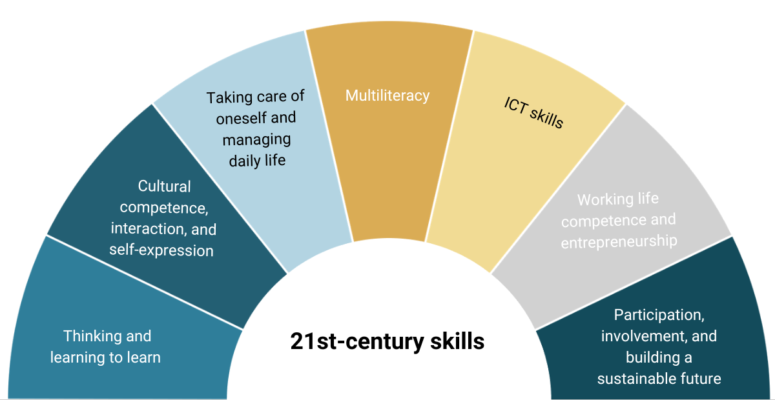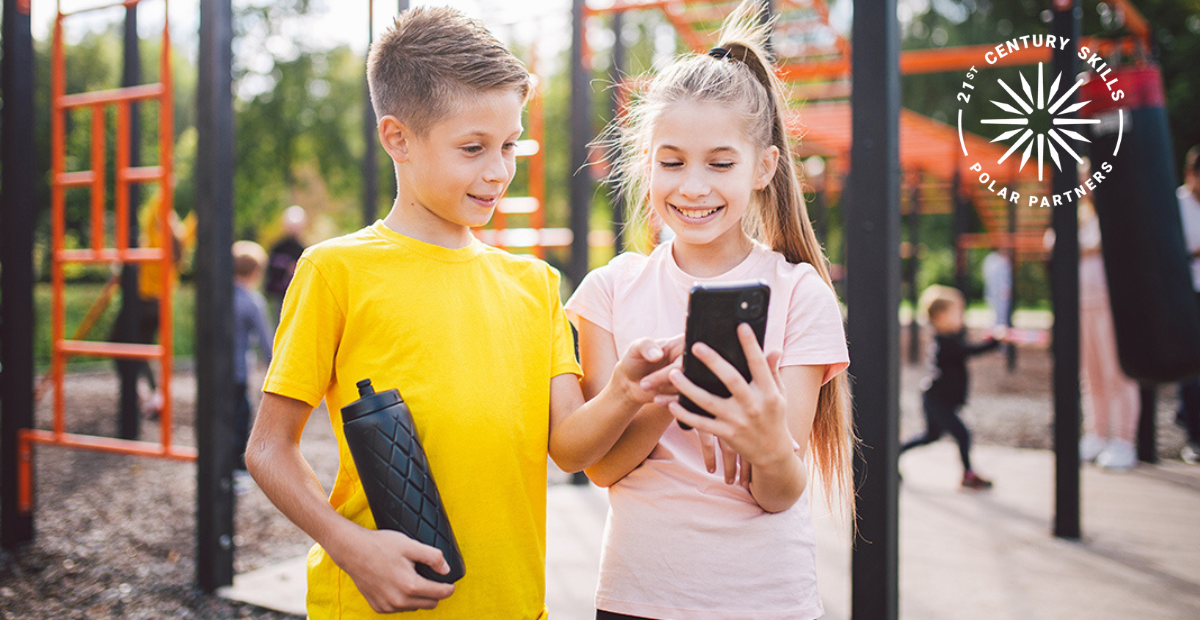A core principle of Finnish education model is to support students’ growth as individuals, enhance skills necessary for participating in tomorrow’s democratic society and make sustainable choices regardless of your age. This requires knowledge and competences that crosses boundaries and connects different fields of knowledge.
Finnish National Core Curriculum for Basic Education (2014) contains objectives, core content and evaluation criteria of all school subjects. It also introduces seven transversal competencies integrated into all subjects and school activities. These so-called 21st-century skills are tools that can be universally applied to enhance ways of thinking, learning, working and living in the world.
Our blog series will unlock the secrets of 21st-century skills:

21st century skills – 3. Taking care of oneself and managing daily life
Increasing independence among youth means that schools have more responsibility in guiding students toward good citizenship.
While a school’s primary task is to educate children, schools also have an important task to co-raise children in age-appropriate ways starting from how to tie shoelace or how to be a good friend to self-regulating technology usage and scheduling studies effectively. Students have more independence in their choices and actions while growing up. Accordingly, their choices and actions have a greater impact and consequences – surely it’s normal to make wrong choices or not be so aware of the consequences of your actions, that’s a part of learning. It is essential to be interested and discuss with students about their daily lives. During a discussion is much more easier to share experiences and advise students how to take care of yourself and make sustainable choices. Experiences and stories, good and bad, help students to understand their wider effects on themselves or to the community.
Becoming a responsible consumer
Along with teaching awareness of media and technology, consumer awareness and technology usage self-regulation are becoming ever more relevant. Everyone has a phone and access to web and social media – even though not all content is suitable for children. Students can critically evaluate their consumer behavior and the influence of advertising, so they can adjust their behavior and manage their consumption. Taking care of your own money (financial management skills) is also an important part of forming a foundation for future independence and are easy to practice in school e.g. in math or social studies.
Sometimes human relationships flourish in school corridors as all positive and negative situations with family, friends, boyfriends and girlfriends, teachers, or other authorities are dealt with there. Seizing the moment in teacher-led discussions about topical issues with the whole class might be a far more significant learning experience than a geography lesson.
Another key aspect is increasing students’ awareness of health, general safety, and security. Being familiar with factors affecting them is vital in developing a student’s understanding of their limits and ability to take care of themselves. The ability to respect shared rules and identify security are also important life themes that should be covered in school.
While schools can focus on only a few of these topics at a time, the most important one is to ensure a safe and healthy environment where students can develop essential skills for self-care and managing everyday life.
This article is part of our series about 21st-century skills, a crucial theme in the future of education. Read about all the other transversal competencies in our blog.
